The latest news in science, exploration, and culture will open your eyes to the world’s many wonders. Get a National Geographic digital magazine subscription today and experience the same high-quality articles and breathtaking photography contained in the print edit.
JAIPUR • A CELEBRATION OF COLOR
FROM the EDITOR
JOIN THE PRIDE THIS MONTH IN HONOR OF WORLD LION DAY
IN FOCUS • JUST IN FROM OUR PHOTOGRAPHERS
HIS FUTURE CAN BE YOUR LEGACY
DISCOVER INDIA’S RAREST ROYAL TREASURE
100 HEALTHY EASY ONE POT RECIPES
CONTRIBUTORS
HOW TO RETRIEVE 55 TONS OF DINOSAUR BONES FROM THE SAHARA DESERT • Millions of years ago, what’s now North Africa was a lush landscape teeming with an incredible variety of life. To reveal more about the mysteries of this lost age, paleontologist Paul Sereno mounted perhaps the boldest dinosaur hunt ever attempted.
A FORMIDABLE FOSSIL QUEST • Paleontologist Paul Sereno’s latest foray into the desert of central Niger covered hundreds of miles on sand-track “roads.” The expedition found his team facing extreme heat, logistical puzzles, and security risks while working to retrieve a remarkable number of fossils.
MAPPING DINOS IN THE DESERT • For decades, the standard means of documenting a dig site required patient field drawing and laborious measurement. Now photogrammetry can accomplish in minutes what otherwise takes days (and in 3D).
At WORK With the GUERRILLA BALLOONISTS of SOUTH KOREA • Inside a covert operation to launch enormous balloons carrying pantyhose and nature films at North Korea
Can Forensic Science Stop the Illegal Wildlife Trade? • Novel technologies and fresh crime-fighting techniques are transforming the battle against trafficking, one gorilla handprint at a time.
The World’s OLDEST COLOR PHOTOS Are Still Developing • More than a century after the invention of autochromes, the revolutionary pictures are now decaying—and revealing a new kind of beauty.
The WORLD’S Most INDOMITABLE DUCK • The Madagascar pochard was thought to be extinct, until one local biologist accidentally stumbled on a tiny flock in the unlikeliest of places.
THE HIDDEN WORLD OF CAVE DWELLERS • For centuries, we’ve sought shelter underground. But today this ancient way of life is under new threat. What can we learn from the last subterranean societies—before they disappear?
THE HOLDOUTS STAYING COOL AS TUNISIA HEATS UP
THE TRIBE PRESERVING A CONNECTION TO THE LAND
A HOME FOR THE HOMELESS
THE DWELLING THAT CHECKS ALL THE BOXES
The FUTURE of DATA STORAGE Is … DNA? • Eons ago, evolution invented DNA to store vast quantities of information. Now scientists think a similar technology could offer a solution to our fast-growing data storage dilemma.
EXTREME BIRDING AT THE EDGE OF THE WORLD • How an abandoned military station in Alaska became an unlikely hot spot for seabird research—and a proving ground for the young scientists who spend their summers there
THE BURIED TREASURE THAT MIGHT HAVE CHANGED HISTORY • Two thousand years ago, the Roman Army embarked on a far-flung hunt for silver. Thanks to a persistent archaeology buff, we’re now learning how close they came to finding an empire-altering fortune.
FUNDING AN EMPIRE • The Roman Empire reached its greatest extent by the second century A.D., fueled in part by a search for resources beyond what Italia could offer. To make its currency, luxuries, and weapons, Rome needed the silver, gold, lead, and iron deposits found elsewhere. Over the course of more than four centuries, it obtained them by conquering and absorbing other lands.
EXPLORING THE FRONTIER • Built on hilltops a little more than a mile apart and in direct line of sight of each other, the...

 Nov 01 2025
Nov 01 2025
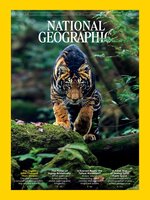 Oct 01 2025
Oct 01 2025
 Sep 01 2025
Sep 01 2025
 Aug 01 2025
Aug 01 2025
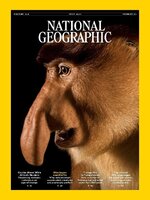 Jul 01 2025
Jul 01 2025
 Jun 01 2025
Jun 01 2025
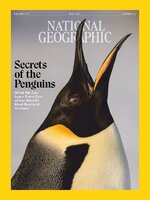 May 01 2025
May 01 2025
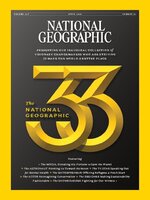 Apr 01 2025
Apr 01 2025
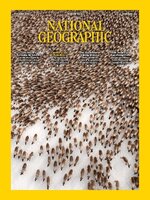 Mar 01 2025
Mar 01 2025
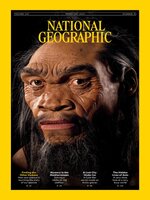 Feb 01 2025
Feb 01 2025
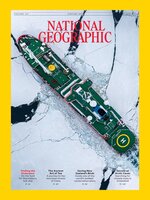 Jan 01 2025
Jan 01 2025
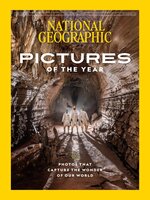 Dec 01 2024
Dec 01 2024
 Nov 01 2024
Nov 01 2024
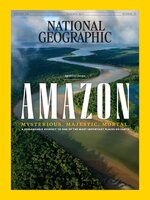 Oct 01 2024
Oct 01 2024
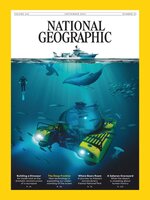 Sep 01 2024
Sep 01 2024
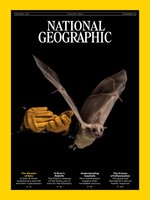 Aug 01 2024
Aug 01 2024
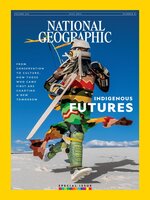 Jul 01 2024
Jul 01 2024
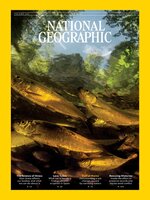 Jun 01 2024
Jun 01 2024
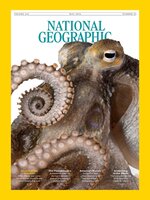 May 01 2024
May 01 2024
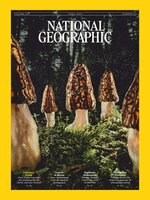 Apr 01 2024
Apr 01 2024
 Mar 01 2024
Mar 01 2024
 Feb 01 2024
Feb 01 2024
 Jan 01 2024
Jan 01 2024
 Dec 01 2023
Dec 01 2023